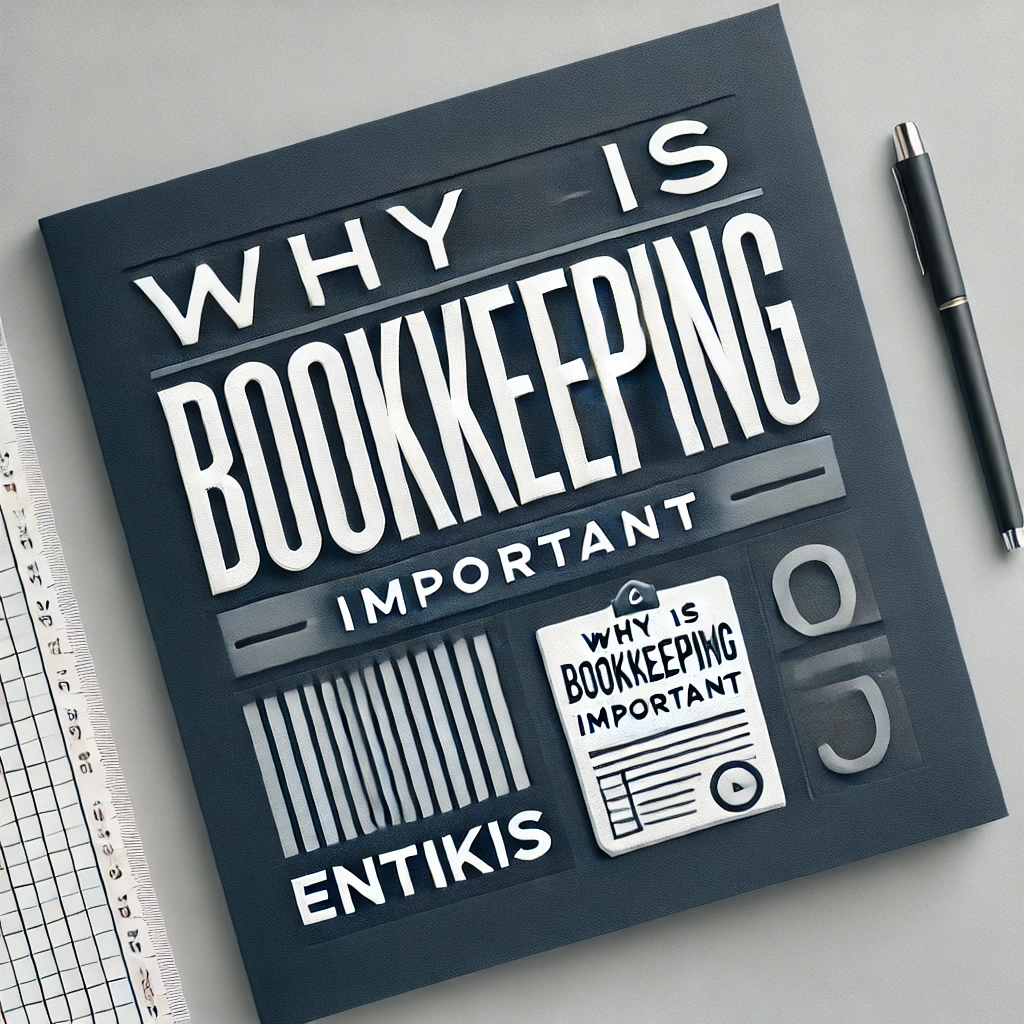
Why is Bookkeeping important?
Bookkeeping is a critical part of managing any business. Whether you’re running a small startup in Fort Worth, Texas, or managing a growing enterprise in the Dallas Fort Worth area, keeping accurate financial records is essential. In this beginner’s guide, we’ll break down the basics of bookkeeping, explain the role of a bookkeeper, and why is bookkeeping important for your business—especially when tax preparation season rolls around.
What is Bookkeeping?
At its core, bookkeeping involves the recording and organizing of a business’s financial transactions. It’s the process of tracking income and expenses to create a clear financial picture. Every sale, purchase, payroll, and other financial movement is documented in a way that helps business owners understand their company’s financial health.
Unlike accounting, which is more focused on interpreting and analyzing data, bookkeeping is more straightforward and day-to-day. It’s about the timely and accurate input of financial data, ensuring the business’s records are organized and up-to-date.
Why is Bookkeeping Important?
There are several reasons why bookkeeping is essential for businesses in Fort Worth and beyond:
1. Legal Compliance: Every business is required by law to keep accurate records of its financial activities. In Texas, businesses must retain records for tax purposes. Proper bookkeeping helps ensure you’re always compliant with state and federal regulations.
2. Financial Clarity: Bookkeeping helps you stay on top of your finances by giving you a clear view of your income, expenses, and profits. It allows you to make informed decisions about where to allocate resources or when to tighten the budget.
3. Tax Preparation: When tax season arrives, having clean and well-organized records is crucial. Whether you handle tax preparation yourself or hire a professional bookkeeper in Fort Worth, accurate bookkeeping ensures your taxes are filed correctly and on time. It can also help you take advantage of deductions you might have otherwise missed.
4. Better Business Decisions: Accurate financial data allows business owners to make more informed decisions. When you know exactly how much you’re spending and earning, you can strategize more effectively for growth.
What Does a Bookkeeper Do?
A bookkeeper is responsible for maintaining the company’s financial records. Their duties typically include:
-Recording Transactions: Every sale, purchase, and expense needs to be logged accurately. A bookkeeper ensures all transactions are entered into the correct accounts.
-Managing Accounts Payable and Receivable: This involves keeping track of money owed by the company (payables) and money the company is owed (receivables). A good bookkeeper ensures that bills are paid on time and that customers are invoiced promptly.
-Bank Reconciliation: This is the process of comparing your financial records to your bank statements to ensure everything matches. It helps catch any errors or fraudulent activities.
-Producing Financial Statements: Bookkeepers often prepare financial reports, like profit and loss statements or balance sheets, which give business owners a snapshot of the company’s performance.
-Assisting with Tax Preparation: By maintaining accurate records throughout the year, bookkeepers make it easier for business owners or accountants to prepare taxes when it’s time to file.
Many businesses in the Dallas Fort Worth area choose to hire a professional bookkeeper for this task because it can be time-consuming and requires attention to detail.
Bookkeeping Methods
There are two primary methods of bookkeeping: single-entry and double-entry.
1.Single-Entry Bookkeeping: This is a simple method often used by small businesses or sole proprietors. It involves recording each transaction as a single entry, much like a checkbook register. While it’s straightforward, it doesn’t provide a complete picture of your financial health, making it less suitable for larger businesses.
2. Double-Entry Bookkeeping: Most businesses use this method because it’s more comprehensive. For each transaction, two entries are made: a debit and a credit. This system helps ensure the accounts always balance and provides a clearer view of your business’s financial position.
Hiring a Professional Bookkeeper in Fort Worth, Texas
If you’re a small business owner in Fort Worth, Texas, or the Dallas Fort Worth area, hiring a professional bookkeeper could be a game-changer. A qualified bookkeeper will not only handle the day-to-day management of your financial records but also make sure your business is prepared for tax season and compliant with local laws.
A professional bookkeeper brings expertise and efficiency to your business, freeing you up to focus on growth and customer satisfaction. Whether you need help with bookkeeping or tax preparation, finding someone local who understands the unique needs of Texas businesses is key.
Final Thoughts
Bookkeeping may seem daunting at first, but it’s an essential part of running a successful business. Whether you’re based in Fort Worth or elsewhere, staying on top of your financial records will save you time and money in the long run. If you’re unsure where to start or don’t have the time to handle it yourself, hiring a professional bookkeeper is a great solution. They’ll keep your business organized, assist with tax preparation, and ensure you’re making informed financial decisions.
With accurate bookkeeping, you’ll have the peace of mind to focus on what really matters—growing your business in the vibrant Dallas Fort Worth area.
If You Are Looking For Professional Bookkeeping Services, Please Contact Us At Admin@Entikis.Com And 817-415-1715 To Learn More About How Entikis Bookkeeping Can Support Your Journey To Success! Located At 640 Taylor St Suite , Fort Worth, TX, United States, Texas. We Offer Professional Bookkeeping Services For Businesses In The Burleson, Fort Worth And The Surrounding Tarrant County Metroplex.




